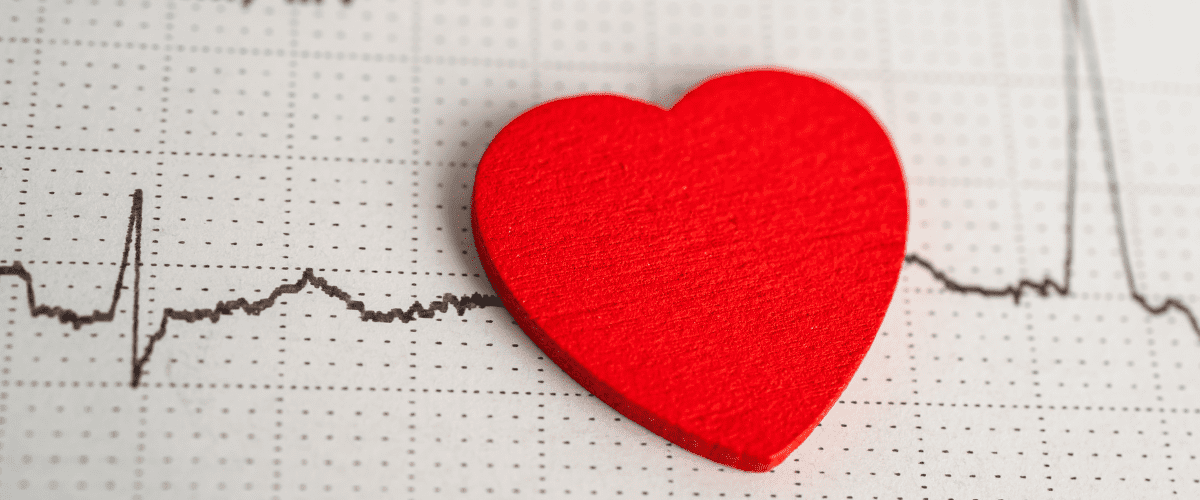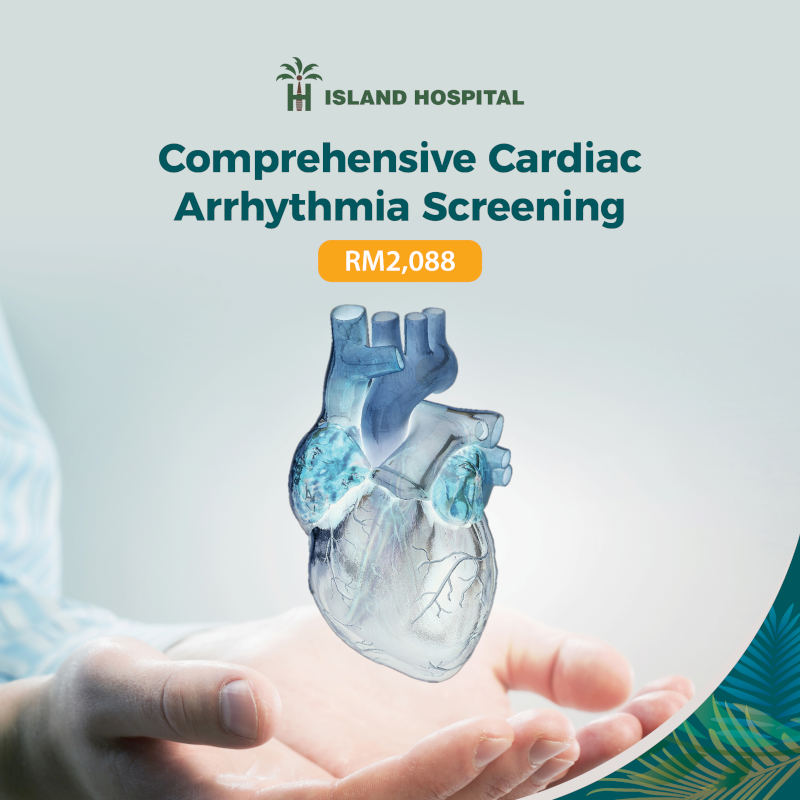
15 Mar How to Stop Heart Palpitations: 7 Tips and Remedies
How to Stop Heart Palpitations: 7 Tips and Remedies
By Island Hospital | Mar 15, 2024 3:30:00 PM
In our increasingly fast-paced lives, we may find ourselves experiencing heart palpitations. This condition is characterised by fast, slow, or irregular heartbeats.
Heart palpitations are frequently linked to a range of factors, including anxiety and physiological conditions. Understanding how to prevent heart palpitations can empower individuals to take charge of their cardiovascular well-being.
From lifestyle adjustments to stress management techniques, we’ve compiled a list of ways to nurture a healthy heartbeat and stop palpitations.
What Do Heart Palpitations Feel Like?
You may experience heart palpitations for a few seconds, minutes or more. These palpitations can be felt in your chest, throat, or neck. It may feel like your heartbeat is:
- Racing
- Irregular or missing a beat
- Pounding
- Fluttering
- Flip-flopping
What Causes Heart Palpitations?
Heart palpitations are common and usually not harmful. They can be caused by:
- Fever
- Menopause
- Stress and anxiety
- Lack of sleep
- Vigorous exercise
- Low oxygen levels in your blood
- Alcohol, caffeine, and nicotine
- Certain medications (e.g., asthma inhalers, diet pills)
- Medical conditions (e.g., an overactive thyroid, a heart rhythm problem)
7 Tips and Remedies to Stop Heart Palpitations
Keep Hydrated
Staying hydrated is crucial for maintaining a steady heartbeat. Dehydration can contribute to palpitations, as it forces the heart to work harder to pump blood through the blood vessels to the muscles.
Staying hydrated eases this process, keeping your blood pressure normal and helping you maintain a steady heartbeat. Therefore, ensure you drink enough water to support overall heart health.
A recommended daily water intake is 15.5 cups for men and 11.5 cups for women, where your fluid intake is made up of plain water and other sources such as juice, fruits, and vegetables.
You may need more plain water after strenuous physical activities and during warmer temperatures. However, limit water intake if you have health conditions such as thyroid disease or are on medications causing water retention.
Reduce Stimulant Intake
Stimulants such as caffeine and nicotine can trigger heart palpitations. In fact, prolonged use of nicotine may potentially trigger severe cardiovascular events such as heart attacks.
Consider reducing or eliminating the intake of these stimulants to minimise their impact on your heart rhythm. Here is the full list of stimulants to avoid:
- Tobacco products
- Caffeinated beverages (e.g., coffee, tea, energy drinks)
- Appetite suppressants
- Cold and cough medications
- Certain mental health medications
- Illegal substances such as cocaine
However, do note that the effect of these stimulants will vary among individuals.
Avoid Excessive Alcohol Consumption
Excessive alcohol intake can lead to heart palpitations. This is proven by the holiday heart syndrome, where individuals experience cardiac arrhythmias after a period of binge drinking during the weekends or holidays.
The most common symptom experienced by these patients is heart palpitations. This is because alcohol stimulates the secretion of stress hormones such as cortisol, which increases the heart rate and blood pressure.
It is important to note that although reducing alcohol consumption will reduce the health risks, there is no “safe dosage” of alcohol to prevent cardiac arrhythmias from happening.
Therefore, consult your healthcare professionals and reduce alcohol intake to promote a healthier heart.
Try Relaxation Techniques
Stress and anxiety contribute to heart palpitations. Anxiety activates a fight or flight response in the body, effectively increasing your heart rate.
Therefore, engaging in relaxation practices helps to reduce your stress and anxiety levels, contributing to a calmer heart rate. Here are a few techniques to try:
- Breath focus: Take long, slow, and deep breaths and gently disengage your mind from distracting thoughts and sensations.
- Body scan: Practise deep breathing for a few minutes and mentally release physical tension at one group of muscles at a time.
- Guided imagery: Imagine soothing scenes or places to help you relax and focus.
- Therapy: Work with a mental health professional and learn strategies to reduce stress levels.
- Yoga or tai chi: Practise rhythmic breathing with a series of movements to help you relax.
- Mindfulness meditation: Sit comfortably, focus on your breathing, and bring your attention to the present moment.
Exercise Regularly
Incorporate regular physical activity into your routine to promote cardiovascular health. Exercise improves overall heart function, reducing the likelihood of palpitations.
Adults need 150 minutes of moderate-intensity physical activity and 2 days of muscle-strengthening activity every week. Moderate-intensity activities include actions such as brisk walking and dancing, while muscle-strengthening activities include exercises of all the muscle groups.
Overall, you are recommended to move more, with increasing intensity, and reduce sitting time. This will lower your risk of heart disease, among other health complications.
However, individuals may react differently to exercise, and some may encounter palpitations. Therefore, consult your doctor before starting a new exercise plan.
Try Vagal Manoeuvres
Vagal manoeuvers stimulate the vagus nerve, which helps to regulate fast heartbeats and restore normal heart rhythm. This nerve plays an important role in controlling mood, digestion, immune function, and most notably: the heart rate.
These manoeuvres can assist in slowing down electrical activity to a part of the heart called the atrioventricular (AV) node.
This technique is used to manage a condition called supraventricular tachycardia (SVT), where the heart suddenly starts beating much faster.
Here are a few ways to stimulate the vagus nerve:
- Hold your breath or bear down as if straining during bowel movement.
- Coughing forcefully.
- Place a cold stimulus (e.g., a damp towel) on your face for 10 seconds.
We recommend you learn and practise these manoeuvres under the guidance of a healthcare professional.
Eat a Balanced Diet
To prevent heart palpitations, consume a well-rounded diet rich in fruits, vegetables, lean proteins, soy foods, and whole grains.
Fruits are soluble fibre, which can lower bad cholesterol levels and decrease palpitations. Similarly, soy foods enrich your diet by reducing blood pressure and cholesterol levels.
Next, avoid foods and drinks which are known to contribute to palpitations. This includes the stimulants and alcohol mentioned earlier.
You should also avoid red meat high in saturated fat and processed food with excessive salt and preservatives. You may also want to reduce your intake of sugary foods and drinks, which also contribute to palpitations.
Hence, eating a balanced diet with essential nutrients will contribute to overall heart health and prevent palpitations.
Additional Treatments
Heart palpitations could be a symptom of the following types of arrhythmia:
- Atrial fibrillation (AF): The heartbeat is irregular and faster than normal.
- Supraventricular tachycardia: Episodes of faster-than-normal heartbeats at rest.
- Ventricular fibrillation: The heartbeat is rapid and disorganised. Failure to treat immediately can result in loss of consciousness and sudden death.
Should your healthcare provider suspect any of these conditions, they will recommend additional tests.
The treatments for these conditions include medicines, electrical cardioversion, catheter ablation, pacemakers, and implantable cardioverter defibrillators (ICD).
All of these treatments are designed to help prevent and control the rate of an arrhythmia and return your heartbeat to a normal rate.
When to Seek Help
Schedule an appointment with a healthcare professional if you are experiencing heart palpitations and:
- They persist or worsen.
- They last longer than a few minutes.
- You have a heart condition.
- You have a family history of heart conditions.
Call 999 immediately if you are experiencing heart palpitations and:
- Chest pain
- Shortness of breath
- Dizziness
- Fainting or blackouts
Schedule an Appointment with Island Hospital
Island Hospitals offers a comprehensive range of heart-related health screening tests and treatments to suit your unique needs. Our team of healthcare professionals are ready to assist you every step of the way.
We provide a full range of cardiac services, including heart disease prevention, diagnosis, intervention, and rehabilitation for adults and children.
For a thorough assessment of your heart health, consider our Cardiac Arrhythmia Screening Package. This package includes all the essential tests: Resting ECG, Stress Test, Echocardiogram, Blood Investigation, and more.
FAQ
1. How do you stop heart palpitations fast?
Employ relaxation techniques such as deep breathing, cold water splashes, or light physical activity for immediate relief.
2. What foods stop heart palpitations?
Foods rich in magnesium, potassium, and antioxidants can help prevent heart palpitations. Consider incorporating leafy greens, bananas, nuts, seeds, and berries into your diet. These foods may contribute to a more stable heart rhythm.
3. What is a natural calm for heart palpitations?
Natural remedies for calming heart palpitations include herbal teas such as chamomile, which have mild sedative properties. Additionally, mindfulness meditation and yoga can contribute to a sense of calm and potentially reduce palpitations.
4. Can drinking water stop heart palpitations?
Dehydration can sometimes contribute to heart palpitations. Ensuring proper hydration by drinking enough water throughout the day may help prevent dehydration-related palpitations.
5. What triggers palpitations?
Various factors, including stress, anxiety, caffeine intake, certain medications, hormonal changes, and underlying medical conditions such as heart disease, can trigger palpitations. Identifying and addressing these triggers is crucial for effectively managing and preventing heart palpitations.







